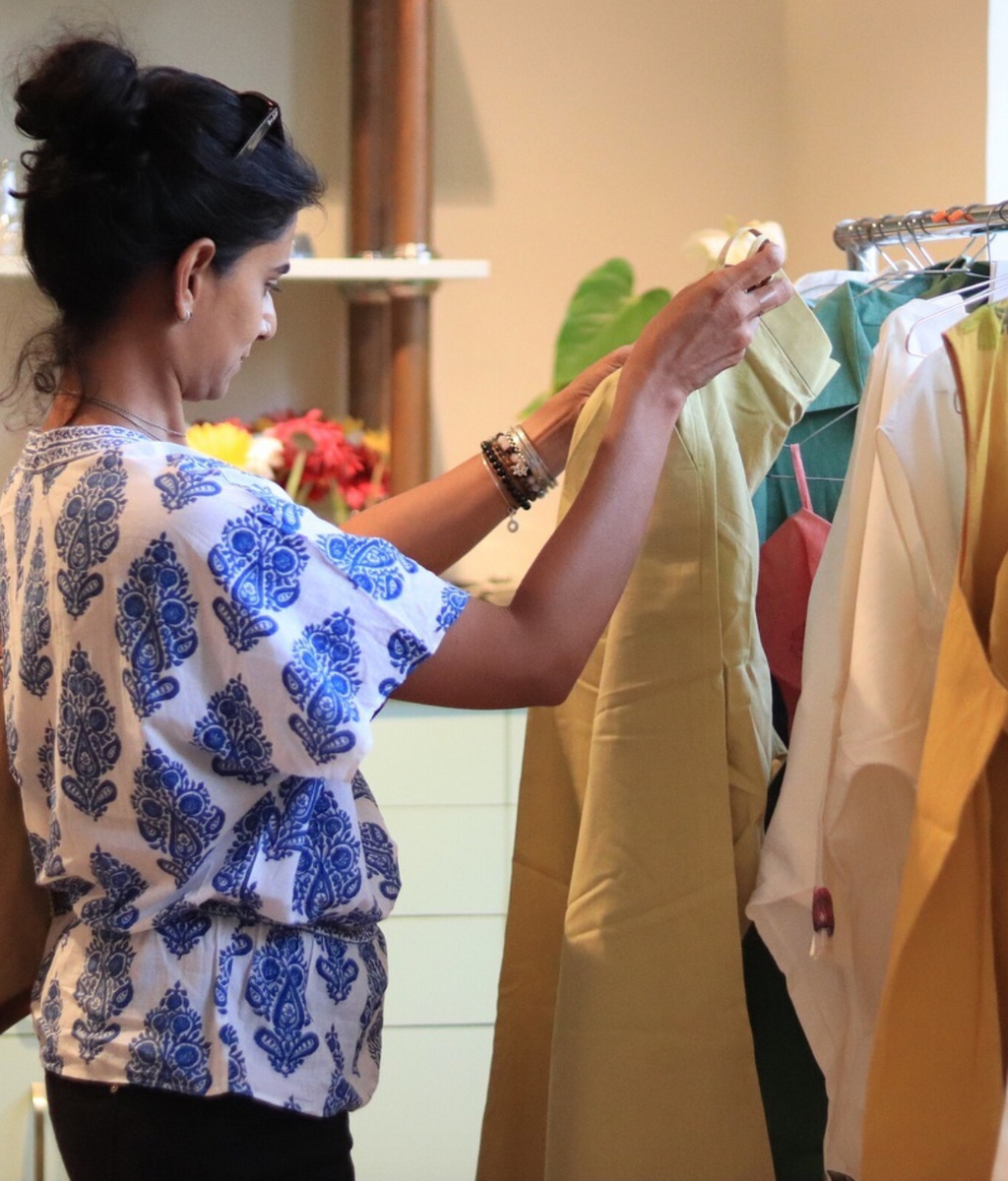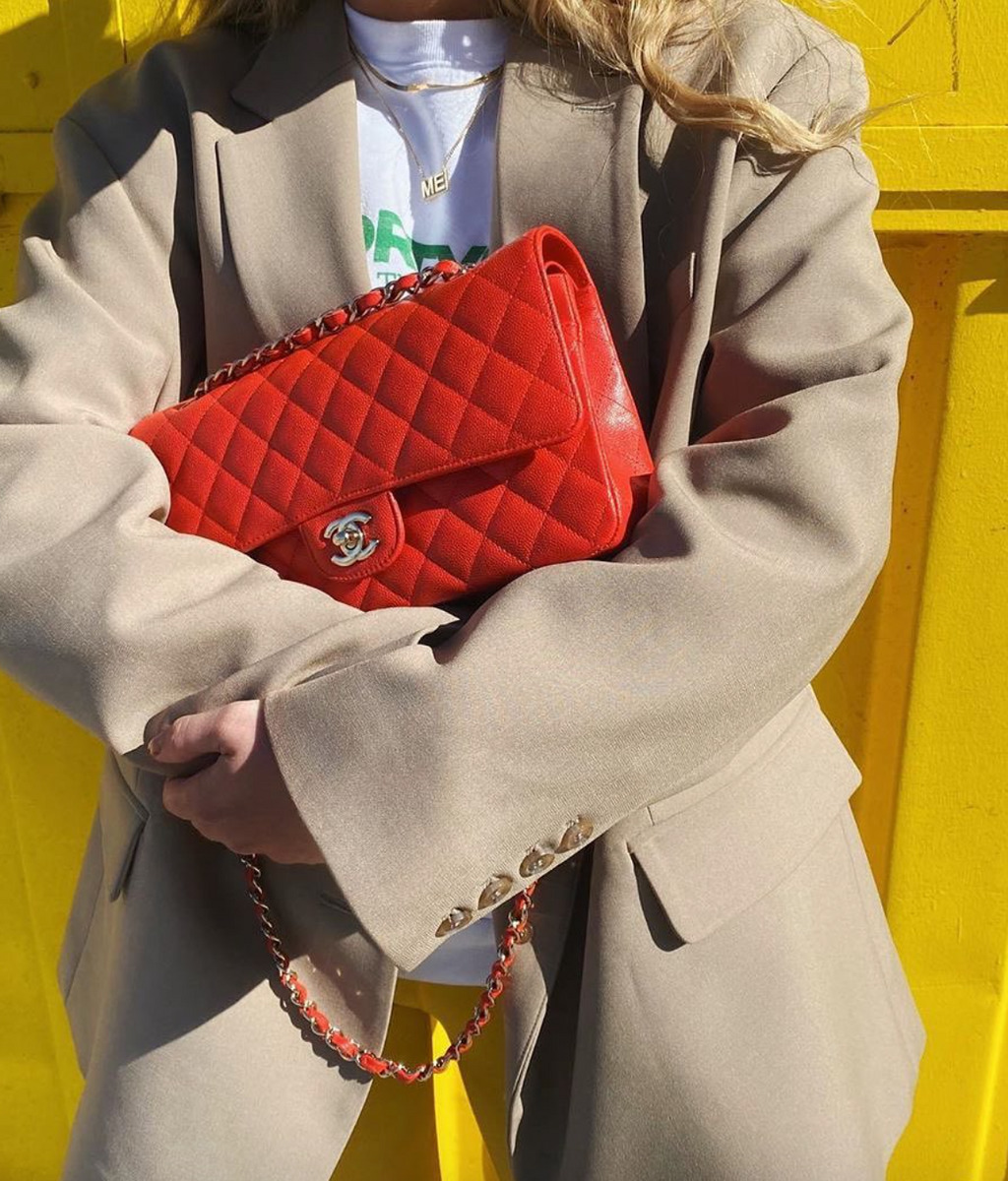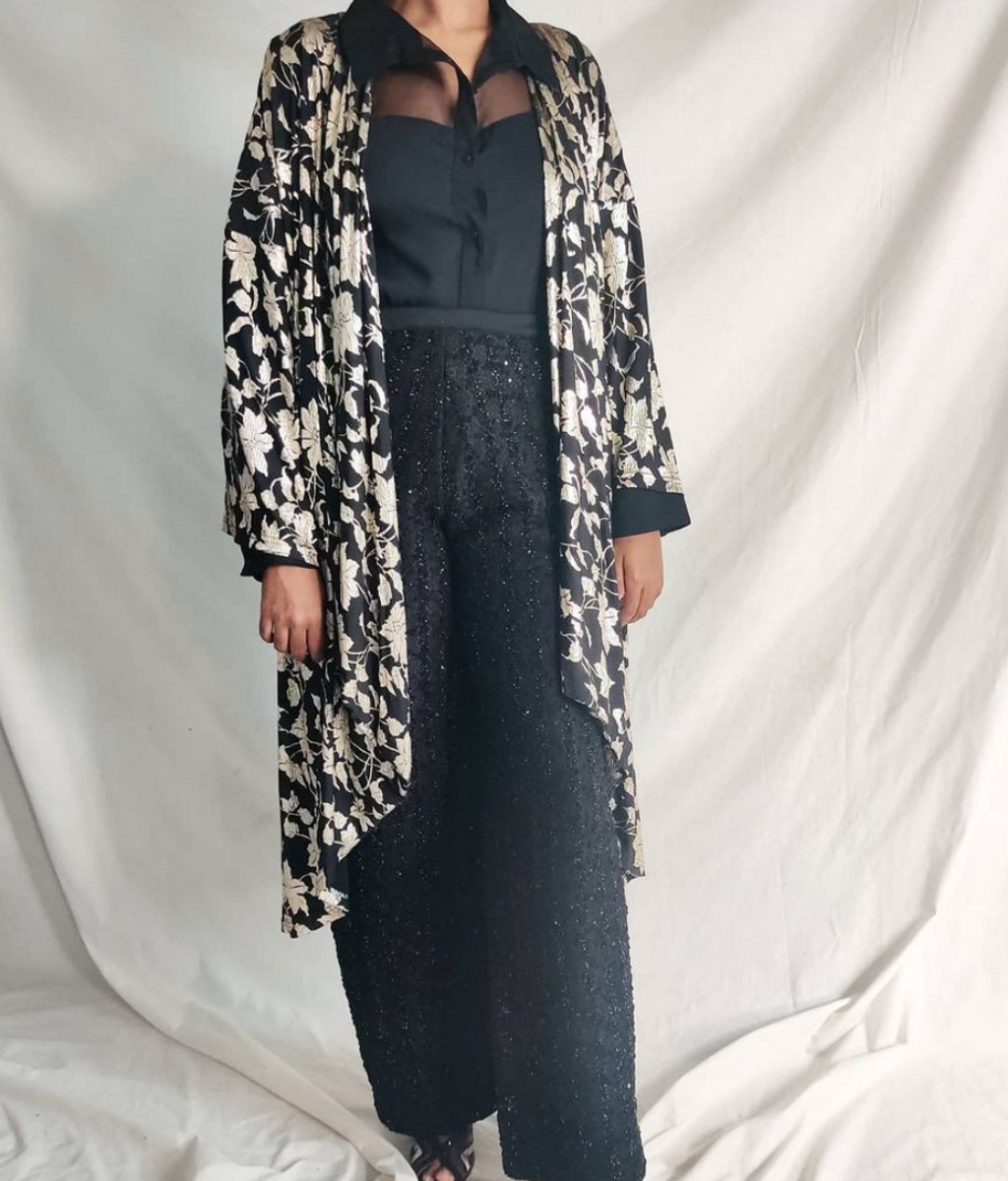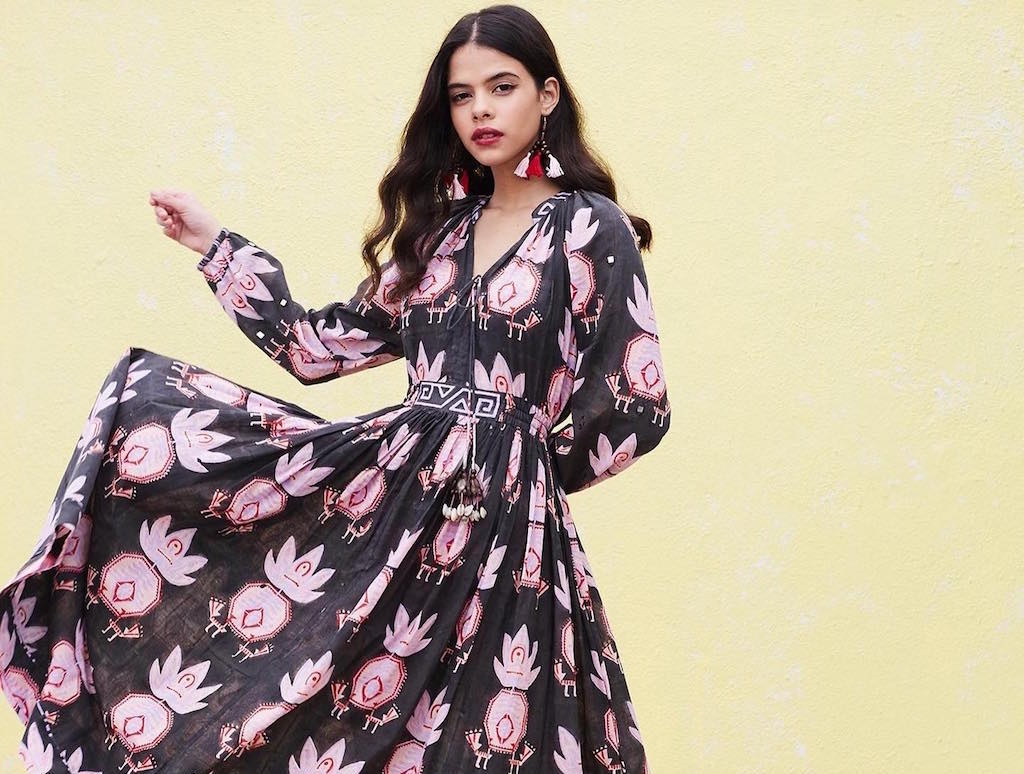10 Mins Read
According to a recent report, the second-hand clothing market will reach US$51 billion within 5 years and will overtake the fashion market by 2028 as used clothing is increasingly finding value in the hearts of consumers, particularly with millennials and Gen Zs shoppers, who are rejecting the idea that fashion relies on having the latest fast fashion brands and designs and instead, are making themselves aware of the environmental footprint of such kind of clothing and thus opting for second-hand clothes reducing unsustainable new production.
Below we round up few names that are not only breaking these barriers in the minds of Indian consumers but are also helping people increase the shelf life of their clothes and reduce the massive negative impact from clothes that eventually end up in landfills degrading the earth’s ecological system either through swapping initiatives or rental options.
This For That
Nancy Bhasin and Vaybhav Singh first started This For That with swap parties in Delhi and NCR. Later in September 2018, they transformed the concept into an app-based platform for only women across India to exchange clothes and beauty products.
In an interview with the Hindu, Bhasin expressed her love for sustainability and why it is necessary that the second-hand trend keeps growing. “The number of conscious shoppers is very less. The rest want to buy and hoard more. The whole point is to make sustainability palatable. We do so by layering it under a great deal and so you feel like you saved money as well as the environment.”
To use the app, you can sign up via Facebook. If you want to swap, upload a picture of the product and fill in details about the condition, sizing, etc. Depending on how old the piece is, you set the value accordingly. Once the items are uploaded in the various categories, the This For That team checks the product, and once approved, the user can click on the swap button.
Subsequently, the app offers suggestions of products you might like, and if you like something you can exchange it using your credits, for instance, an INR 1000 credits worth of a bag for a dress for INR 1,000 credits. If the value of an item uploaded by another user doesn’t match yours, you can offer one more item in return.
Bhasin added that there is no limit on how many products can be put up for swapping. “Women exchange everything from fitness gear and even lingerie. We started getting a lot of uploads for sports bras and expensive branded bras which we used to reject. But we had to change that because we were getting messages saying ‘we already have a swapper, please allow it’. ”
The app also has some special features like the social connect feature which gives an opportunity for the women participants to connect with each other and share their likes, dislikes and accordingly facilitate exchanges. Another notable feature is the SOS feature where women can post their fashion emergencies, questions, queries, opinions on fashion, beauty and the community reaches out to help them.
Users can either do a temporary swap where they return the item after a specific period of time or a permanent swap, whereby they keep it forever. Available for download on Play Store and the App Store, the company offers doorstep pickup and drop-off across India.

Revamp My Closet
Founded by NIFT graduate Samriddhi Agarwal and IIT Roorkee graduate Ashish Katta, Bengaluru based-company Revamp My Closet is an online store for buying and selling used clothes claiming to have the largest inventory compared to its other competitors in the market.
Interested consumers can drop in a mail and then the company will get in touch with you, pick up your clothes, share a quote after careful quality inspections, and then pay you accordingly. For those who are interested in buying, there are plenty of used clothes belonging to high-street brands as well.
The young NIFT graduate Samriddhi Agarwal opened this startup when she noticed her maid using the tee she had given to her for mopping the floor and she had the idea to start giving away her clothes for money to someone who can use it again without it going to waste.
Once the user is satisfied with the price the company quotes, Revamp My Closet transfers the money to them, and the clothes collected are first laundered, and subsequently, a photoshoot is taken and the pictures are uploaded on the website for sale again.
Shop at Revamp My Closet here.
Riya Collective
Founded in April 2019 by Sarina Siddhanti and Arian Agrawal, U.S. based startup, Riya Collective is a rental platform that offers high-end and luxury Indian clothing on a consignment basis thus tackling the problems of buying luxury pieces by making them affordable and thus contributing to a more sustainable fashion economy.
The brand offers consumers formal saris, lehengas and anarkalis, usually outfits worn just once or twice at major events like weddings and other celebratory events, at a competitive rental rate. With the wedding scene massive in India, the brand has tapped into the right space and since its launch has grown by 50% every single month.
To take the platform one step forward, Riya Collective will establish a ‘trade in / resale program‘ to give customers who buy from them the option to sell the garment second hand through the brand once they’re done using it.
To further its circular business model for Indian consumers living abroad, the startup recently raised US$150,000 in funding from the seed accelerator Y Combinator.
GreenStitched
Founded in Bengaluru, GreenStitched is a volunteer-led initiative was launched in 2015 to make sustainable fashion mainstream. Founder Dhawal Mane told Hindustan Times how the initiative is an attempt to simulate the experience of shopping in a mall by segregating garments by size or type and offering trial rooms. “One time, we set up our ‘Swap Floor’ inside a retail clothing store. The aim is to remove the stigma around thrift-shopping and present it as a lifestyle choice.”
Stating that the swaps are organised for all genders, Mane added, “It’s really nice for us to be inclusive as a community.”
To participate in the swaps, the entry fee is INR 100 and participants can bring maximum 10 items to the venue on the designated day of the swap. After the item has gone through quality checks, participants will receive a coupon which can then be used to purchase another item of their liking.
The initiative also went on to organize the first film festival on sustainable fashion called the GreenStitched Film Festival.

Confidential Couture
Founded in 2014 by Anvita Mehra and joined by friend and co-founder Jharna Gianchandani, Confidential Couture aims to make luxury fashion available to the masses and facilitates the buying and selling of pre-owned luxury offering consumers reused clothes from a range of brands like Louis Vuitton, Chanel, Hermés, Fendi, Prada, Jimmy Choo, Gucci, and many others
Once the goods are listed on the website, they undergo strict examination and also if required, bio-cleansing, with eventually a price tag decided on the condition of the item.
In an interview, Mehra shared that thorough checks ensure people get authentic designer goods, supported by the company’s guarantee and at a great price. “The items are broadly categorized as ‘Never been Used’, ‘Gently Used’, and ‘Fairly Used’, to indicate their condition and each category is explained to give a clear indication of what it offers in terms of product quality. The idea is to give buyers an actual impression of the product making the process absolutely transparent.”
In a year of starting, the gross revenue of the company exceeded over INR ₹2 crore (US$274k) given the high demand from young conscious consumers. Mehra added that when they first started out, they were creating a used luxe goods market and it was difficult to play upon the perception of the consumers. “But, over time, this market has gained acceptability and we have found confidentiality as one of the main drivers to build customers’ trust in us.”
It currently has 350-400 sellers and receives 15,000 new visitors every month.
Shop at Confidential Couture here.
Everwards
Established in Chennai, eco-friendly retail brand Everwards, was started by Veena Balakrishnan and Sudarshana Pai in June 2018. Both of them have completed their studies in fashion technology and are well versed with the amount of non-biodegradable industrial waste the fashion industry produces.
The pre-loved clothes are priced at about 10% of MRP, even those items with tags still attached. Their current collection consists of tops and jewellery, with an effort to expand their collection in saris as they’re not only free size but a growing fashion trend among the 20+ crowd.
Balakrishnan mentioned that there is a lot more demand for giving than buying. “At most 10% of the clothes we get, end up being sold. Often, the effort and cost of checking, ironing, and readying the clothes for the sale becomes more than the sales themselves. If people see quality clothes, minimally worn, at low prices, it might act as a bait for them to opt for pre-loved. We wanted to help people practice the art of letting go, because most of us buy impulsively, without thinking of the repercussions.”
Everwards’ editions of its secondhand clothes sales usually attract about 150-200 people.
Apart from secondhand clothes, Everwards also sells a range of toiletries made out of coir like scrubs, bath brushes, and bottle cleaners. Aside from this, napkins and pouches are available which are made out of dead cotton and women can also purchase menstrual cups made from BPA-free medical grade silicone.

The ReLove Closet
One of the most recent startups in this space is @therelovecloset founded by Chennai-based graphic designer Sruti Ashok. Initially, when the pandemic hit, the page began to raise funds for a local NGO helping daily-wage labourers.
In a month’s time, it raised INR ₹7 lakh (approx US$9k) and Ashok, who also runs INAI (@inaistory), an upcycled leather accessories brand, decided to continue the online store and presently resells items on behalf of like-minded people along with raising funds for various social causes. The platform offers pre-loved and vintage pieces from luxury international designers, homegrown brands, as well as fast-fashion labels.
Delivering across India, the store provide detailed item descriptions and also mention measurement details. For the customers’ extra convenience, they have a sticky post in their Instagram story highlights that details all the hashtags the brand uses so that you can go back and browse through available items according to size quite easily.
Eco Bazaar
Under the Hyderabad-based social enterprise The Sustainable Indian, Eco Bazaar is a monthly initiative started by Nidarshana Saikia Das, a permaculturist and sustainable lifestyle practitioner, and Aruna Nayagam, a healthy living enthusiast.
In one of their editions, Eco Bazaar displayed children’s toys and books and in another edition, saris, accessories, and menswear were up for swaps.
For any products that are left behind, Eco Bazaar has tied up with Goonj, an NGO donating the remaining clothes. Das mentioned that they don’t want the Bazaar to be a dumping ground for old clothes. “So we put a limit of three that you can bring, and three that you can take back.”
Aside from clothes, the stalls also feature organic millets, cold-pressed oils, staples, vegan products, jute bags to upcycled decoratives, compost bins, menstrual hygiene products, etc.
With respect to the dry waste generated from these sales, Nayagam said, “Whatever dry waste is generated from the event, we have offered to take them back. For this, we have tied up with waste management company, Waste Ventures. We are still struggling to cut down on the plastic packaging in the event. Hence, we are consulting the sellers extensively and encouraging them to treat this platform to try out things like carrying snacks in glass jars and offering them in paper bags, and so on. Most sellers have the intent but they are struggling themselves and we are enabling them to experiment at our platform.”
You can check out this page for updates on upcoming eco bazaars.
According to the United Nations FCCCC, at the moment the fast fashion industry is accountable for over 10% of global carbon emissions and is estimated to take over 24% of the global carbon budget by 2050 due to increasing demand.
However as the love and value of secondhand fashion continues to rise in India and across the world, for instance, China where the second-hand trend is booming with the latest WEF report predicting the industry will take over 20% of the country’s GDP by 2025, these carbon emissions can be lessened thus reducing its overall effects on our planet.
Lead image courtesy of Riya Collective.



